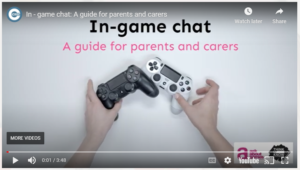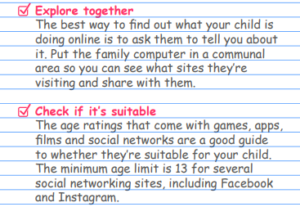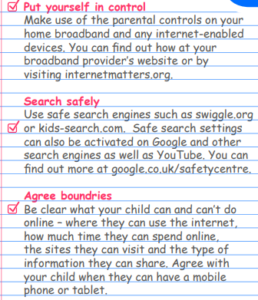Online Safety
The progressive development of our children’s digital awareness and online safety is woven throughout our Computing curriculum and also forms a crucial part of our RSHE (Relationships Sex and Health Education) provision.
Our overarching intent is for our children to become “Digital Citizens” who can manage their digital identity effectively and ensure that all of their online behaviour is safe and positive.
At Woodlands, we recognise that computing is an integral part of everyday life and will play an immeasurable part in our children’s futures and we appreciate the many benefits that it can bring to enhance learning.
We strive to provide our children with the skills, creativity and enthusiasm to live and thrive in a world increasingly dependent on online technology.
Therefore we explicitly teach our children how to use the internet in a secure and respectful way: about taking precautions and managing risks online and how to report anything that makes them feel uncomfortable; how to behave online as they would in “real life” (with kindness) etc.
Starting with introducing Digi Duck and Smartie the Penguin in EYFS to exploring Cyberbullying and building Digital Resilience in Y6, our Woodlands Online Safety provision strives to guard against the potential and real challenges and dangers of spending time online.
Helping your child to navigate their online world
TV ad – Safety advice from a 10 year old.
Share Aware, from NSPCC and O2 resources recommend that parents and carers have regular and informed conversations with their child about online safety.
Their aim is to get every family in the UK chatting about their child’s online world, just like they would about their day at school:
“We tell children that’s it’s good to share, but online it’s different and sometimes it can be dangerous.”
O2 & NSPCC Online Safety Helpline – 0808 800 5002
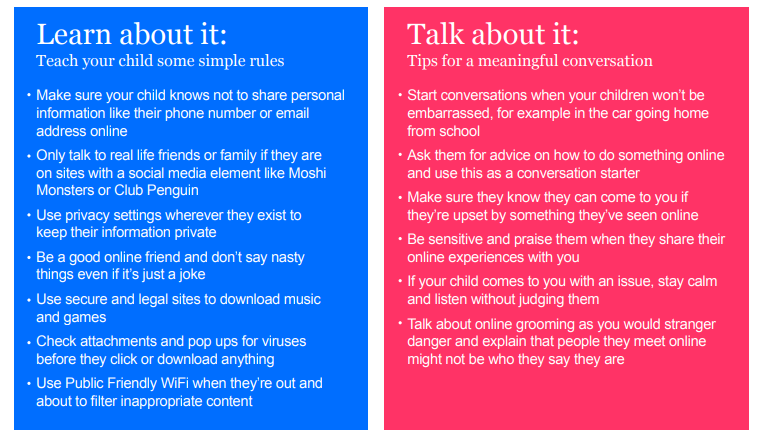
Managing Screen Time:
Are you concerned about how much time your child spends on their phone/tablet/computer? Please click on image below for a helpful video:
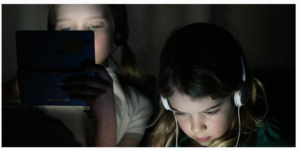
Gaming Advice
In – game chat: A guide for parents and carers
The PEGI age rating on game packaging e.g. 3, 7, 12, 16, 18 means that the game shouldn’t be played by a young person under that age.
Use the “Search” function to find a game and you’ll be shown a content breakdown including:
- How much graphic content appears in the game;
- How often/where it appears and how strong it is
Building up their Digital Resilience
Internet Matters features up-to-date resources e.g. a Digital Resilience Toolkit:
“Just like teaching a child to ride a bike or cross the road, digital resilience is another way to highlight the need to help children cope with whatever the online world throws at them.”
Cyberbullying
The best way to protect your child from cyberbullying is to take an active interest right from the start. They need your love and protection online as much as they do in the real world. What your child is exposed to will depend on how they’re using the internet. For example, social network users are more likely to experience cyberbullying, see sexual or violent images, or have contact with strangers.
How to protect your child from Cyberbullying
Managing social activity
UK Safer Internet Centre Responding to Sexting
The Government’s ThinkUKnow website has published some online activities for parents and carers to explore with their children at home in order to demonstrate the importance of staying safe online:
Ages 4-5 can be found here.
Ages 5-7 can be found here.
Ages 8-10 can be found here.
Ages 11 and over can be found here.
Further resources include:
-
CEOP Information about online safety and who to contact if you have concerns.
